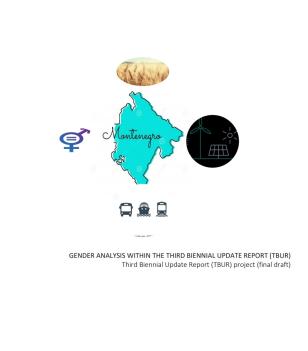Gender and climate change analysis / Gender capacity assessment of NGOs within Climate Promise
Gender and climate change analysis / Gender capacity assessment of NGOs within Climate Promise
November 1, 2021
The feminization of climate change is a national and international issue that needs to be raised higher on the agenda of the policy response and national and international efforts in the process of combating climate change.
The complexity of the problem requires a complex approach that includes several levels and specific methods, all with the aim of a comprehensive and nuanced response to climate change at the social and individual levels.
Climate change is a process that is directly correlated with vulnerability and social exclusion at the societal and individual levels, however its implications are yet to be explored. Тherefore, national and international efforts must take into account the factors of social vulnerability, social exclusion and gender inequality, all in order to create appropriate climate/environmental policies and climate actions that ensure equal access and equal coverage of the entire population.
In 2021, as a part of preparations for the Third Biennial Report, the United Nations Development Program, in cooperation with the Ministry of Ecology, Spatial Planning and Urbanism of Montenegro agreed to develop the two assessments which will reflect the main characteristics and capacities of state and non-state actors to participate in creation, implementation and monitoring of the climate change policies and action through intersecting gender and climate change.
The Ministry and UNDP also agreed to present the main findings and recommendations of both assessments at various stakeholders' meetings to ensure better exchange of information and expert inputs for an informed climate change planning and reporting.
The first assessment - Gender analysis for the Third Biennial Report is concentrating on assessing capacities of the national institutions dealing with climate change1 to integrate gender equality considerations within climate change policies. The assessment covered the five areas: a) policy alignment, b) institutional coordination, c) capacity building, d) sex-disaggregated data and gender information and e) dedicated financial resources.
The second assessment - Gender Capacity Assessment of Civil Society within Climate Promise Initiative in Montenegro is primarily focused on environmental/climate change NGOs on one, and NGOs working on protection and empowerment of women and marginalized groups on the other side. It was aimed at assessing their capacity to interlink the gender equality within the climate action, as well as to encourage them to contribute to adaptation and mitigation policies.

 Locations
Locations





